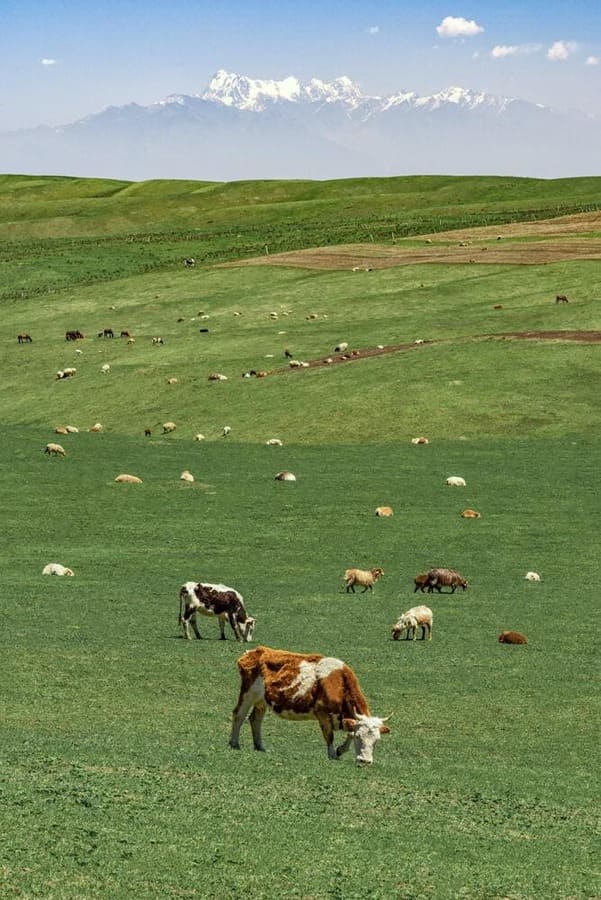Does meat pollute?

Does meat pollute? The answer is yes but, how much? Recent studies show that more than a third greenhouse gases are produced by the food industry and 60% of those gases are related to meat production.
According to Greenpeace, the biggest food processing company in the world “JBS Foods” produces around half of the greenhouse gases produced by petrol giants like “Royal Dutch Shell” or “British Petroleum”
Researchers from University of Illinois tell “The Guardian” that for each kilo of wheat cultivated, 2.5 kilos of greenhouse gases are produced in comparison to the 70 kilos of greenhouse gases produced for each kilo of meat. That is one of the reasons that scientists say that improved eating habits should be implemented among people to avoid severe climate change, as well as more efficient ways of farming should be put in practice for a more sustainable farming industry.
One of the concerns of meat consumption in countries like China and India is that, since the average wealth has increased, more and more people are switching to meat-based diets. That is very alarming, since China and India are the most populated countries in the world and this has the potential to increase the greenhouse gases at an exponential growth rate.

Raising cattle is not the only reason why meat consumption pollutes, it also generates greenhouse gases because, in order for cattle to be raised, there is a need of space, space that is already occupied with forests. So in order to use forest space for growing cattle, people have to chop down trees and burn down forests, creating a bigger carbon footprint.
Water pollution and consumption.
Raising cattle not only pollutes the air, it also pollutes the water near areas where farmers are. That is because the farming animals produce more excrement than the whole human population. It is said that farming animals in the United States of America produce more excrement that the whole population of humans in the planet.
The amount of water used for farming animals is outrageous since it is used for growing crops for feeding animals, cleaning the barns and drinking water for the cattle. It is known that a cow drinks up to 50 gallons of water each day, according to “Denver water”, the water used for producing a pound of beef is close to 1,847 gallons of water.
What is your water footprint?
According to the NHS, the recommended daily meat consumption for an adult is around 70 grams. A balanced diet is needed for every person, and the consumption of meat can be healthy and sustainable. Red meats are the ones that have more saturated fats and also the ones that pollute the most and consume the most water.
It is every person’s decision to choose what to eat and how to eat it, but the awareness should be within each of us. Once we are informed, we could decide what we eat and how.






